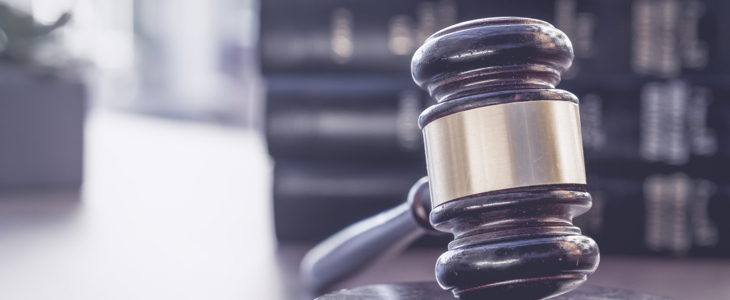Family law cases, especially those involving child custody, can quickly become contentious. Parents who once worked together to raise their children often find themselves with diametrically opposed views on how to parent separately. Other aspects of the divorce or separation can get messy as well, and sometimes the children get lost in the middle. In cases like these, who is looking out for them? Florida law allows for the appointment of a guardian ad litem. The guardian ad litem plays a crucial role in custody decisions, so parents and their lawyers must make an informed choice. Attorney Andrew Nickolaou, Esq. of the Orlando Family Team serves as a guardian ad litem attorney and can assist with your child custody case.
What Does A Guardian Ad Litem Do?
Judges are often overwhelmed by the sheer volume of family law cases. Meanwhile, attorneys represent the respective parties in child custody disputes. In cases rife with animosity between the parents, there is a serious need for a guardian ad litem, or GAL, to become involved.
A parent who is concerned about the well-being of his or her child can ask the judge to appoint a GAL. Judges can also appoint one on their own. The GAL is not a mediator, so her/his role is not to resolve disputes between parents. Although the GAL may be an attorney, he or she is not technically an attorney for the child. Instead, the GAL investigates issues involving the child’s best interests and reports back to the court with recommendations. Or, as Florida statutes describe it, the GAL acts as a “next friend of the child” in court.
What Steps Are Involved in the GAL Process?
More specifically, the GAL may do the following (and more):
- Independently investigate the pleadings in the case and gather relevant facts about the child. This may be done by interviewing the child, witnesses, and other individuals with relevant information.
- Obtain court orders to compel individuals, organizations, or agencies to produce records related to the child. These documents may also pertain to the child’s parents or other household members.
- Ask the court to order expert examinations of the child, the child’s parents, and other interested parties, including examinations by doctors, psychiatrists, and others in the health field.
- Help the court obtain impartial expert examinations. The GAL may rely on his or her network to identify potential experts who can be brought into the case.
- File pleadings, motions, and other court papers, through counsel, which may help the GAL fulfill its purpose. The GAL is also entitled to attend and participate in depositions and compel witnesses to attend.
- Address the court and make recommendations to the judge. Part of this role includes a required written report which may contain the child’s wishes.
The GAL’s recommendations to the court regarding the child’s best interests may concern such matters as custody and visitation, parental roles and responsibilities, and the medical, educational, and financial needs of the child.
How Important Are the Guardian Ad Litem’s Recommendations?
The GAL is in a unique position to obtain impartial facts about the child and relay them to the court. This is information that is usually sensitive and which the judge is unlikely to directly observe. Most of what is otherwise presented in court is done through the filter of attorneys, who have the respective interests of the parents to consider. GALs understand the role they play and take their responsibilities seriously, which is why courts rely so heavily on their recommendations.
At the same time, judges are responsible for ultimately making significant decisions in the case. The GAL cannot award custody or visitation, and judges cannot delegate their duties to the GAL. As with all custody cases, the final standard that must be observed is the child’s best interests. The GAL plays a critical role in supplying information about the child so that a decision can be made which faithfully upholds that standard.
Why Is Having an Attorney GAL So Important?
The GAL is often, but not necessarily, a family law attorney. Non-attorneys can become certified GALs under Florida’s statutes,but there are advantages to hiring an attorney GAL.
First, there are certain notice requirements attendant to many of the GAL’s duties. For example, the GAL must provide proper notice before he or she can interview the child, and must do so in line with any conditions set by the court. There are also deadlines that must be followed, such as filing and serving the GAL report at least 20 days prior to the court hearing in which it will be presented. GALs are expected to know and understand these requirements, but an experienced family law attorney is already familiar with these and other provisions of Florida’s custody statutes.
An attorney GAL also understands what sort of information will likely be helpful to the court — such as how to properly conduct interviews of the child, what to look for in relevant documents — and how best to obtain it. An attorney GAL not only understands the critical role he or she plays in the outcome of the case, but will approach his or her duties with an appreciation for Florida’s custody statutes.
Contact An Orlando Guardian Ad Litem Attorney Today
Andrew Nickolaou, founding partner of Orlando Family Team, has served in the Orange County Legal Aid Society’s Guardian Ad Litem program and in private GAL cases. With his experience as a family law attorney, Andrew brings a unique skill set to the cases in which he is involved. High conflict custody matters demand the dedication and knowledge of an attorney GAL. Contact our office today to discuss how Andrew can help your case.
